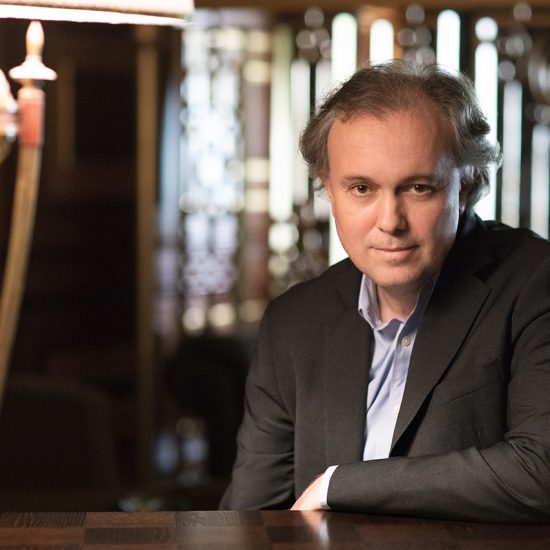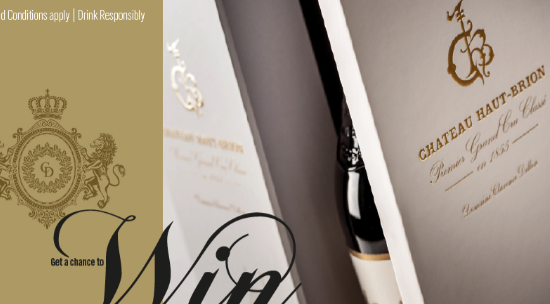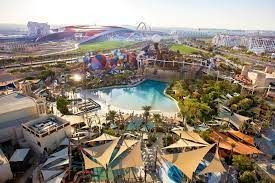
Conceived by legendary Egyptian writer Naguib Mahfouz as a single novel of about 1,500 pages, The Cairo Trilogy is a timeless work of modern Arab literature, with themes, characters and ideas that are familiar and ring true almost 60 years after it was published.
“The Cairo Trilogy is a work on a par with Leo Tolstoy’s War and Peace and Thomas Mann’s Buddenbrooks,” says Dr Rasheed El Enany, dean of the School of Social Sciences and Humanities, professor of Arabic and Comparative Literature, and professor Emeritus at the University of Exeter.
Financial pressures caused the publisher to split Mahfouz’s masterpiece into three volumes published between 1956 and 1957. The titles – Palace Walk (Bayn Al Qasrayn), Palace of Desire (Qasr Al Showq) and Sugar Street (Al Sukkariyyah) – are real streets in Cairo’s Al Gamaliya district, where Mahfouz lived.
The Cairo Trilogy is a saga spanning three generations of a family led by tyrannical patriarch Al Sayyid Ahmad Abd Al Jawad, who rules his household with a strict hand while living a hypocritical secret life of self-indulgence. As they confront middle-class mortality and cultural challenges, the family’s trials mirror those of their country during the turbulent years between the First and Second World Wars.
“It deals with the human condition on a large scale,” says El Enany. “Every human passion and condition is in it: whatever type of person you are, whatever your life experience, it will have something to say to you.”
It took Mahfouz more than six years to complete and was one of the works that helped earn him the 1988 Nobel Prize in Literature, the only Arab to receive the award.
“The Cairo Trilogy was a unique work in its scope,” says El Enany. “It is the first saga novel, or ‘roman-fleuve’, in Arabic, tracing the lives of three generations of one family – but with that, the life of a whole nation, Egypt, at a critical transitional stage of its life, as it moved from a traditional way of life to a western-inspired modernity with all the pains attendant with that, socially and individually.
“And in doing that, all major human emotions and existential questions are probed and shown at work in the lives of the novel’s multitudinous characters.”
El Enany says he chose to study Mahfouz’s work extensively “because he helped me answer some of the big life questions”.
He adds: “From his works, a complete system of thought emerged – maybe that was an influence of his study of philosophy – where all the pieces of the jigsaw of existence fell in place. That makes him very rewarding to study.
“I think The Cairo Trilogy is above criticism. I am not saying Mahhouz is above criticism but this magnum opus of his certainly is.”
The Cairo Trilogy has autobiographical elements, and Mahfouz said he is represented by the character of Kamal Abd Al Jawwad.
“This character evokes the generation of the 1940s, the people who shouldered the burden of liberating Egypt from British rule,” he told The Jerusalem Review. “But all other characters are relatively weak. Their confusion symbolises the generations of frustrations and servility who lived under the yoke of the British.
“My own personality appears, in bits and pieces, in everything I’ve written. But it always serves as a means to my end: to give expression to a generation, not an individual. I use myself to show the problems of the life of an entire Egyptian generation.”
Palace Walk introduces us to Amina, a gentle, oppressed wife; her sheltered daughters Aisha and Khadija; and three sons – tragic and idealistic Fahmy, dissolute hedonist Yasin, and Kamal, a soul-searching, intellectual, Hamlet-like figure.
The rebellious children struggle to escape their father’s domination in Palace of Desire, as the world around them opens up to the currents of modernity and political and domestic turmoil in the 1920s.
Against the backdrop of an evolving Egypt, Sugar Street brings a dramatic climax as the ageing patriarch sees one grandson become a Communist and another a Muslim fundamentalist.
Mohammad Khodour, chief bookseller at Dar Al Shorouk, says Mahfouz’s books remain in high demand.
“Anyone who wants to discover Mahfouz has to start with The Cairo Trilogy,” he says. “It captures everything that is beautiful and ugly about our culture and history. He is the godfather of Arab literature.”
He points out Mahfouz was ahead of his time, writing simplified versions of his books for younger readers, making it easy for them to be added to school curricula.
“We read Mahfouz in my time in schools,” says Khodour. “It is something we need to bring back, for Mahfouz didn’t just write about Egypt – what he wrote captured the true story of the lost Arab soul and its conflicts and confusions.”
Mahfouz’s books have inspired generations of writers.
“His writing has taught me to refine the language I use in my writing,” says Noura Al Khoori, an Emirati author of books for children and young adults.
“His writing opened my eyes to twists and tricks writers use in their plots. Mahfouz was intelligent in how he could play on the readers’ emotions and thinking. His style and voice are gripping, so that you feel you want to go back to his books time and time again. The intricate plots. The clear characters. But most of all, his use of the language – not a wasted word.
“Anyone can read and enjoy Naguib Mahfouz, from a university professor to a simple labourer.”
M Lynx Qualey, a freelance writer in Cairo and blogger for the Arab-literature blog arablit.wordpress.com, says she identifies with one of the characters in The Cairo Trilogy.
“Like Mahfouz, I identify with Kamal, and so Kamal’s fate – as an unmarried teacher and emotionally crippled recluse – stretches me every time I reach it,” she says. “I think I’ve recognised myself in his failures ever since I was a teenager, which perhaps has helped soften life’s blows.
“I treasure Mahfouz because he is so easily enjoyable. You can pull his books around you and live inside them. But of course there also has to be the second part: his worlds continue to help us understand ourselves and others, as well as the world around us.”
The first English translation of The Cairo Trilogy, in the early 1990s, was in part thanks to Jacqueline Kennedy Onassis who, as an editor at Doubleday, read it in French to consider for publication.
Like his characters, Mahfouz faced challenges and controversies. Some of his works were banned, and in 1994 he was stabbed in the neck by an extremist, leaving his right arm partly paralysed.
His forgiveness of the attacker, and determination to continue working, added to his stature as a man dedicated to the written word, justifying the award of the Nobel for “an Arabian narrative art that applies to all mankind”.
Mahfouz died in 2006, at the age of 94.
• The Cairo Trilogy: Palace Walk, Palace of Desire, Sugar Street, published by Everyman’s Library in 2001 is available in bookshops and on Amazon for about Dh150. The individual volumes are available for Dh50 each, published by Anchor.








